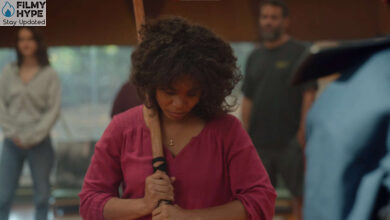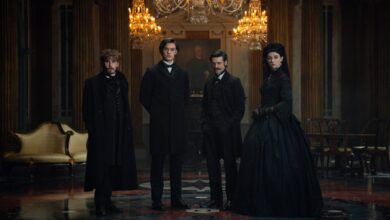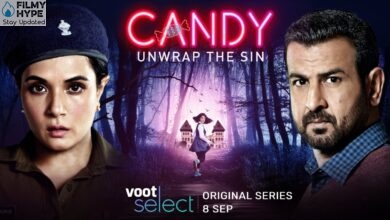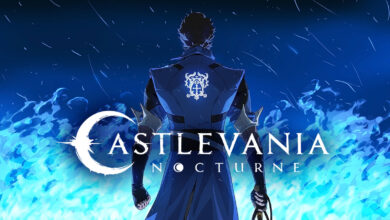The Last of Us Series Review: Crafted a Worthy Adaptation of Naughty Dog’s Masterpiece Into A Tv Series
The review of The Last of Us: the HBO TV series succeeds in adapting the video game with great tact and awareness.
Cast: Pedro Pascal, Bella Ramsey, Anna Torv, Gabriel Luna, Nick Offerman
Director: Jeremy Webb, Ali Abbasi, Neil Druckmann, Peter Hoar, Liza Johnson, Jasmila Zbanic
Streaming Platform: HBO Max
Filmyhype.com Ratings: 4.5/5 (four and a half stars)
The Last of Us, Naughty Dog’s 2013 video game, was and still is a masterpiece. The TV series produced by HBO, created and written by Craig Mazin and Neil Druckmann, is no different and is the best live-action transposition from a video game ever. They are strong statements, of course, which arrived after hours of reflection, of silence, with the stomach closed after the 9 episodes previewed. With the same thrills of ten years ago, during the credits that closed the curtain on the unforgettable gaze full of doubts of the young Ellie. This time, instead of the digital face Ashley Williams brought to life a decade ago, there are the boyish eyes of Bella Ramsey, and instead of Troy Baker’s bearded Joel, there is the tired and lined face of Pedro Pascal. Two interpreters who have loaded the weight of an immense responsibility on their shoulders, that of restoring the same emotions with which a man and a teenager made of polygons have overwhelmed the hearts of many fans.
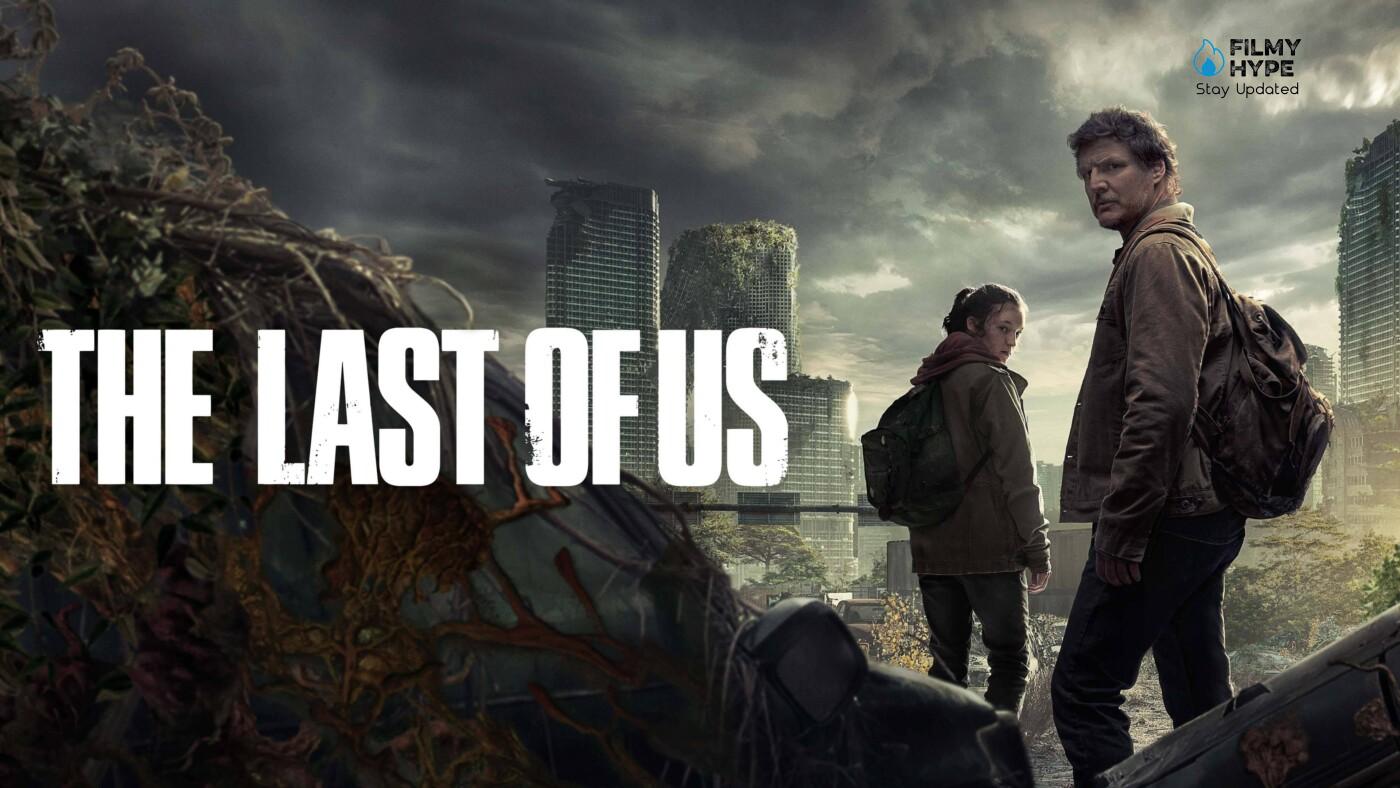
And the good news is that yes, Pedro and Bella have succeeded, together with Mazin and Druckmann behind the scenes, to make a believable, faithful live-action adaptation. A work of the heart, which will not only allow newbies to get to know the same beautiful story that PlayStation published in 2013 but will offer fans of the first hour further insights into the mythology and characters created by the Naughty Dog team. Often respectfully following the original material, sometimes keeping the right distances from the video game, but always and in any case with textbook coherence and functionality. And therefore, with the embargo expired, here we are chasing the Lights once again.
The Last of Us Series Review: The Story
But let’s start from the beginning, from that prologue set in 2003 that begins the story of The Last of Us and makes it clear right away what awaits us for all nine episodes that make up the first season: when a lethal pandemic breaks out caused by the Cordyceps mushroom, Joel Miller is a single father who lives in Texas, in the suburbs of Austin, with his daughter Sarah. His instinct tells him to try to escape and leave the city with the help of his brother Tommy, a former soldier, but he soon has to deal with the harsh reality of a world that is already collapsing and in which anything is allowed to survive. And, when we see him again twenty years later, in the Boston quarantine area, it is easy to see that nothing is left of humanity and that paternal sweetness. With him now is only Tess, a strong, strong-willed woman equally hardened by twenty years of horrors we can only imagine.
Joel and Tess are smugglers: like everyone else, they live within the city walls and under the strict control of the military regime, but unlike others, they are used to getting by outside too, in those now desolate lands where terrible gods rage. monsters” who are nothing more than human beings who went mad by the mutation and are therefore absolutely lethal. Joel would like to leave Boston to go west, in search of his brother whom he hasn’t seen for years, but he needs a car battery that is still functional, a commodity that is increasingly rare to find. To offer it to him in exchange for a special mission comes Marlene, leader of the Lights (Fireflies in the original, or Lucciole), a “terrorist” group that has been fighting the military for years at any cost. The mission involves transporting a special “package” out of the city, Ellie who appears to be vital to the rebel group. From here on begins an adventure on the road through an America almost unrecognizable and devoid of humanity. A journey begins that will mark the lives of both protagonists forever and that will make Joel rediscover feelings and emotions that he believed lost forever.
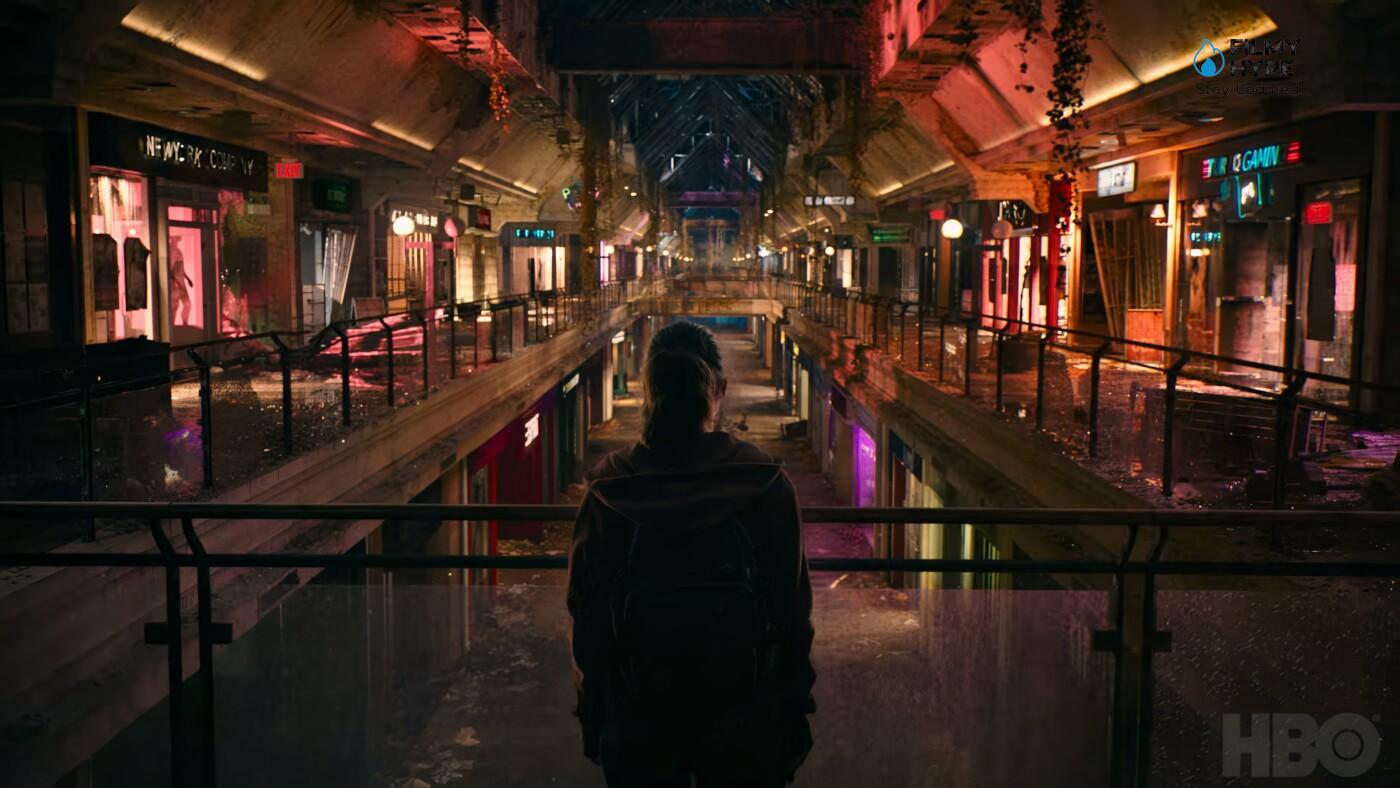
That The Last of Us TV series wanted to stay as faithful as possible to the source material was clear from the very first promotional images, from the shots stolen from the set, from the first trailers and the authors’ statements. the central core of the story does not change at all: twenty years later the outbreak of an epidemic that has decimated the world’s population, turning most humans into ravenous infected cannibals, a smuggler agrees to escort a little girl from one end of the United States to the other. A simple “job” for Joel (Pedro Pascal), who in this brutal and excruciating journey forges a deep bond with Ellie (Bella Ramsey), to the point of wanting to protect her like a daughter from the dangers of the outside world and the threat of apocalypse. Through the outstanding pen of Craig Mazin, The Last of Us series portrays the decay of an entire civilization with exceptional craftsmanship, while the contribution of co-writer Neil Druckmann is crucial in shaping the mythology and key characters of Joel and Ellie’s journey.
The faces of Tess, Bill, Henry, Sam, Marlene and all the supporting actors that gamers know well remain crystallized in their respective roles, with small but significant differences that are coherent and functional to the television story and the transition from one medium to another. other. The talent of the two authors blends perfectly in a flawless weave: Mazin’s ability to tell the decline of mankind with raw realism joins Druckmann’s great sensitivity in returning to modeling his characters, in some ways even improving their role in television writing.
This is the case of the entire narrative structure, which does not compromise and retraces events, flashbacks and twists with the same rhythm as the video game, but expands the background, giving more breathing space to both the protagonists and the origins of the Cordyceps virus. In the re-adaptation work, Mazin and Druckmann even manage to go beyond the original story, replacing some action segments (which would have been empty and redundant outside the video game) with a very fine and delicate work of introspection, giving a much deeper sense both to the secondary faces of the cast and to the characterization of the two protagonists, brought on stage by a pair of actors who could not have been more close-knit than this.
Bella Ramsey is an entirely convincing Ellie, sweet and vulnerable in its greatest moments of fragility but also aggressive, combative and tenacious, just like its unforgettable videogame counterpart. On the other hand, Pedro Pascal’s Joel is simply perfect: the now-iconic actor of Game of Thrones, Narcos and The Mandalorian delivers the most moving and intense performance of his career.
The Last of Us Series Review and Analysis
The Last of Us is a matter of time, we said. Starting from what it took to find the right formula for an adaptation worthy of the original video game. We needed to reflect to understand that no, a film wasn’t the best choice. It was discussed in 2014 with Sam Raimi as a producer, but luckily the project never went through. Because Joel and Ellie are a story that needs more space, more time, and “seasons” (those of nature in the video game) to experience together with these two characters. And so time has made everyone understand that the TV series is the only possible solution. The only one capable of returning the same rhythm of the story and the same gait along the most beautiful post-apocalyptic adventure ever told in the last ten years.
Thus, during its 9 episodes full of humanity and foolish people, The Last of Us TV series proceeds with the right times to make us fall in love with two people, catch our breath alongside them to the sound of “dead time” in which to learn how to know each other, hope for them and even be disappointed when Joel and Ellie perform aberrant actions. Because while Neil Druckmann wrote the game with No Country for Old Men in mind, The Last of Us it is not a place for pure hearts and weak stomachs. We understand it little by little, thanks to a series that is an act of love towards the video game and the very art of transforming stories. Because in the transition from the pixel to the small screen, The Last of Us does not lose an iota of its power and its charm. What was the decisive move? Simply eliminate everything that worked in the game, but would have been out of tune (or tired) in a TV series. And, conversely, inserting new elements that only a television narrative would have exalted.
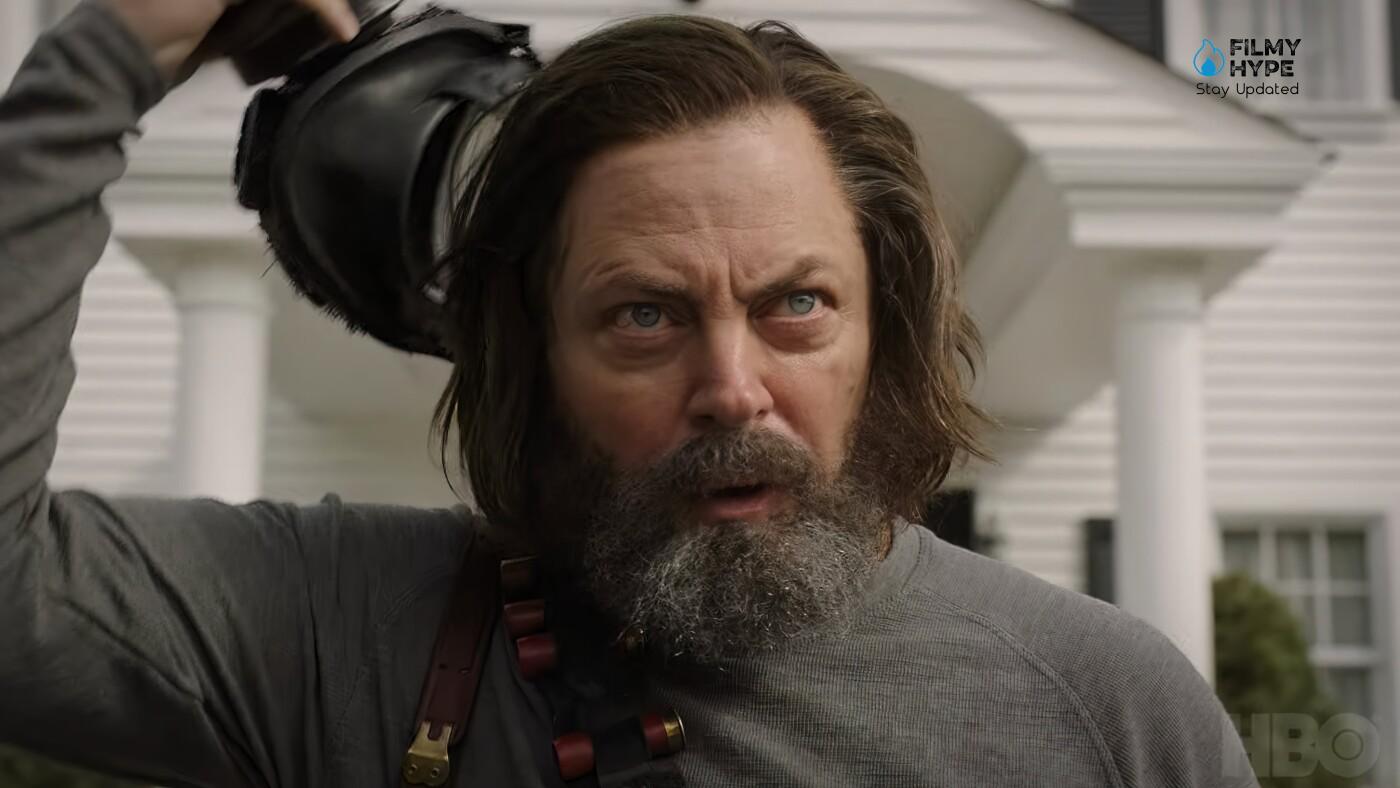
Thus emerges a faithful adaptation in the soul, full of quotes and little goodies that will be loved by fans, who, however, allow themselves the luxury of changing some things (at the risk of even making them angry). For example, by broadening the horizons of the story beyond the borders of Joel and Ellie, focusing on other survivors or on the causes of the epidemic (despite The Last of Us always dwelt on the consequences). This also means giving up a lot of action, limiting it to a few moments where tension and violence explode with fury. It means proceeding slowly and patiently, enjoying every panorama and reading every piece of paper found in a drawer. This means having understood what makes The Last of Us special: certainly not shooting clickers or breaking the heads of enemies, but dwelling on the silences, on the breaths, on two people who contaminate each other along the adventure as if they had bitten each other.
As the epidemic spreads like wildfire (and hatred) across the planet, the writing of The Last of Us goes against the tide and wedges itself into the hearts of Joel and Ellie. They are the cornerstone, the nucleus, and the beating heart of this TV series which will give the small screen two new unforgettable characters. The merit is not only of scrupulous, intimate and realistic writing in every single spoken line but also of the moving alchemy between Pedro Pascal and Bella Ramsey, simply perfect in the role of Joel and Ellie. Stronger than any superficial and hasty doubts about their casting, the two interpreters are exceptional in embodying all the nuances of these two survivors who gradually learn to hold hands. Everything happens with a disarming naturalness, without didactic dialogues, without highlighter in hand. Everything happens thanks to acts in which everyone works by subtraction, to the sound of looks, breaths and emblematic gestures.
This is confirmed by Pascal, who gives life to Joel perhaps slightly less grumpy and unshakeable than the one in the video game because his marked face reveals a latent melancholy and a humanity that is difficult to suppress. This makes his character even more unsettling when he shows us what it’s like to survive in that bastardized world. And then there’s her: the real surprise of The Last of Us. Bella Ramsey is so different from Ellie in the video game. Without those big green eyes Criticized, repudiated and detested by the most toxic fringe of the fandom (which with the reception of The Last of Us Part IIgave the worst of himself), Rasmey responds with the spontaneous talent of the predestined. His Ellie is different only in appearance but identical in soul and attitude. On the one hand, she is still a child: curious, clumsy and above all born in the apocalypse, unaware of the world before. On the other side of her forced to grow up quickly, awkwardly, and brutally, with the sweetness of her round tender face dirtied by blood and mud. That’s why it only takes the two of them to make The Last of Us great. Even in silence, on the saddle of a horse, as they hold each other along the way.
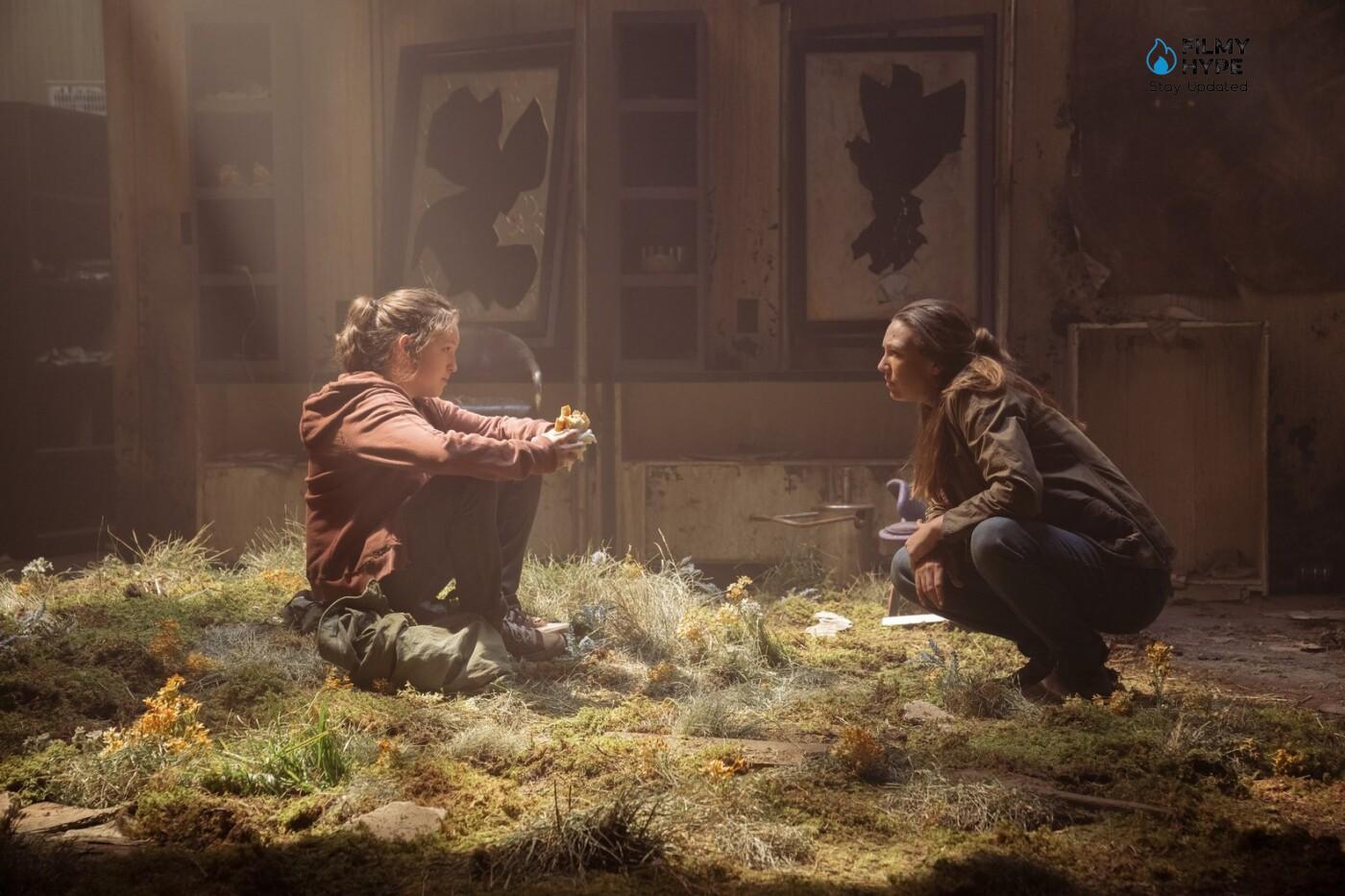
Anyone who has played The Last of Us knows it well: the setting is the third protagonist of this story. Craig Mazin and Neil Druckmann certainly could not forget it, and so the TV series also manages to make a contradictory landscape speak. Because the devastated world of The Last of Us embraces ruin as it cultivates rebirth, full as it is of debris and plantations, of collapsed buildings wrapped in ivy and moss-spotted rust. Two contrasting notes also echo in Gustavo Santaolalla’s splendid soundtrack, which maintains the same traces used in the video game: evocative, melancholic, surrendered and at the same time crossed by hope. The same that instills the hearts of us viewers/gamers in front of this wonderful and inspired TV series, respectful even when it changes The Last of Us. Because he respects the public. An audience he trusts and to whom he entrusts a story that has been testing our empathy in the face of contradictory characters like us for over ten years. To love and hate. How is it done in front of a splendid lie for one person and devastating for all the others?
The Last of Us Series Review: The Last Words
HBO never disappoints, and even in the case of The Last of Us, they make everything look easy when it wasn’t at all. For nine episodes we are transported into a terrifying and beautiful universe and follow the growth and evolution of two complex and fascinating characters as is rarely found in the first season. Direction, cinematography, dialogues and recitations are of an excellent level, the music even more. Apart from a few small “mainstream” concessions in terms of writing, everything is perfect. It was not possible to wish for more.



